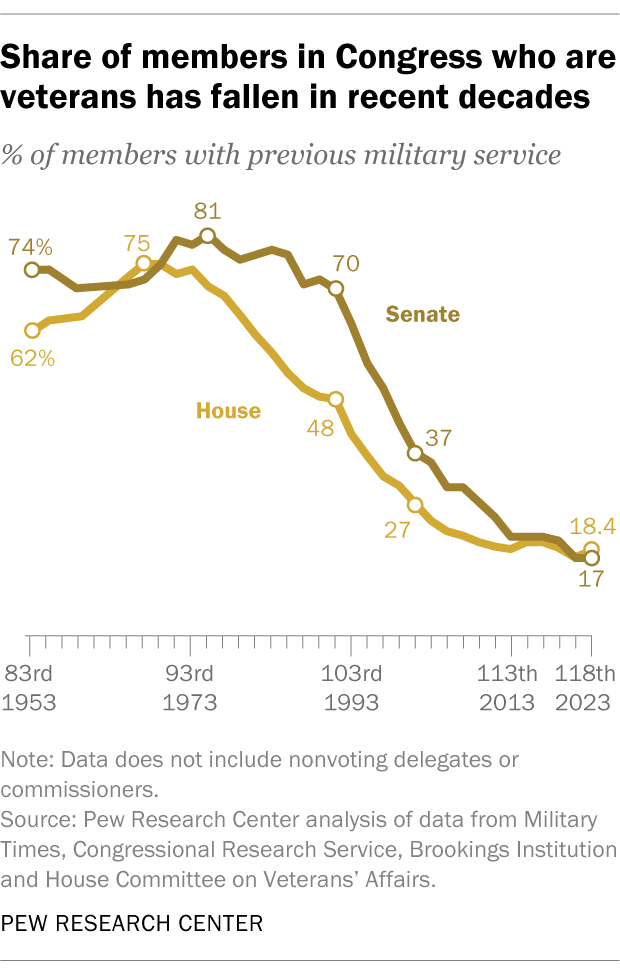Far fewer members of Congress now have personal military experience than in the past. In the current Congress, 97 members have served in the military at some point in their lives – among the lowest numbers since at least World War II, according to Military Times. There are almost three times as many Republican veterans in the 118th Congress as Democratic veterans (72 vs. 25). Roughly similar shares of current representatives (18.4%) and senators (17%) have served in the military.
Since the second half of the 20th century, there has been a dramatic decrease in members of Congress with military experience. Between 1965 and 1975, at least 70% of lawmakers in each legislative chamber had military experience. The share of members with military experience peaked at 75% in 1967 for the House and at 81% in 1975 for the Senate.
While relatively few members of Congress today have military experience, an even smaller share of Americans do. In 2021, about 6% of U.S. adults were veterans, according to the U.S. Census Bureau – down from 18% in 1980, not long after the end of the military draft era.
Bessette/Pitney’s AMERICAN GOVERNMENT AND POLITICS: DELIBERATION, DEMOCRACY AND CITIZENSHIP reviews the idea of "deliberative democracy." Building on the book, this blog offers insights, analysis, and facts about recent events.
Search This Blog
Friday, February 10, 2023
Veterans in Congress 2023
Katherine Schaeffer at Pew:
Labels:
Congress,
government,
military,
political science,
politics,
veterans
